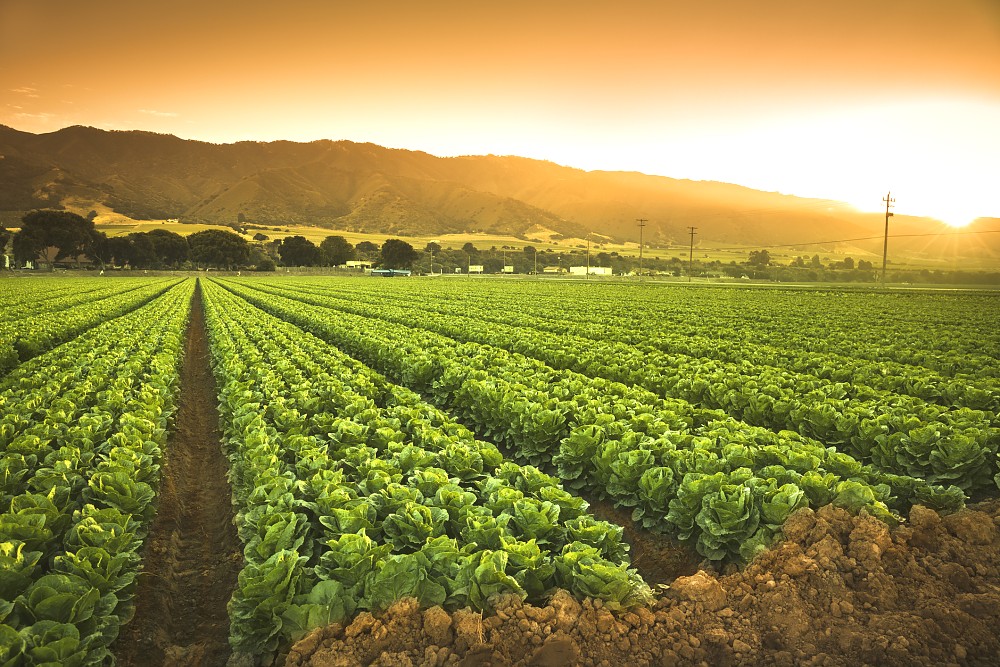The government has said the country is stable in food security, as the Ministry of Agriculture insists it has recorded commendable achievements during 60 years of independence. Minister for Agriculture, Prof. Adolf Mkenda gave the assurance yesterday, when presenting the success and challenges during 60 years of independence, so far. Some 80 percent of Tanzanians depend on Agriculture for their livelihood. The sector contributes to about 27 percent of the country's GDP and about 24 percent to the total exports.
Consequently, the National Development Vision 2025, the main national development strategy in Tanzania, places considerable emphasis on the sector and envisages that by 2025, the economy will have been transformed from a low productivity agricultural economy to a semi-industrialised one led by modernised and highly productive agricultural activities that are integrated with industrial and service activities in urban and rural areas.
Prof. Mkenda said the Ministry intends to achieve the traditional "structural transformation" where increasing agricultural production provides a platform for manufacturing and economic growth. He clearly knows that balanced growth is achieved if agriculture becomes increasingly commercialised, while the manufacturing sector grows. According to the Third Five-Year Development Plan (FYDP-III) the country intends to employ effective application of science, technology and innovation to improve productivity and yields in Agriculture Sector. Given the structure of Tanzanian economy, it is undoubted that the growth of the sector is directly proportional to the socioeconomic development prosperity and poverty reduction.
However, the agricultural growth has been stagnant in Tanzania and therefore requires the use of technology and research to increase productivity and yields. Proper use of research and technology will increase yields, reduce food prices, reduce risks and increase profits and thus benefit citizens from the integrated system of the agricultural sector. In order to increase productivity and efficiency in the agricultural sector, FYDP III will focus on the following areas; Crops: The prioritised products are maize, rice, cotton, cashew nut, tea, coffee, tobacco, sisal, palm, wheat, soybean, cocoa, cassava, sugarcane, horticulture and sunflower.
Key interventions include enhancing research and development in strategic crops, expand sustainable water and land use management through integrated land use planning and improvement of irrigation systems including construction of water reservoirs and encouraging the use of ICT in operation of commercial agriculture. Others include enhancing productivity in strategic crop production, strengthening competitive crop value chain and commercialisation, encourage the use of ICT in operation of cooperatives, encourage the use of ICT in the provision of extension services and introducing modern crop management systems.
Prof. Mkenda also moved to issue clarification over the public outcry on shortage of cooking oil and fertiliser. On fertiliser, the minister said the country had enough tonnes as per the demand of the nation which is 400,000 tonnes. Although he insisted that 400,000 tonnes were still low as per the requirement of the African Nations, they were enough to cater for agricultural activities in the country.
The only challenge on fertiliser was on prices for procuring the consignment that was orchestrated by COVID-19 pandemic in the world market which saw freight charges skyrocketing to uncontrollable situation. "If you look at the prices of fertiliser, you will realise that they have soared to more than 50 percent, a move that has hiked prices at the local level," he insisted. However, he was quick to point out that the government through his ministry had imported recently about 400,000 tonnes, which was enough as per the country's demand. A similar situation according to Prof. Mkenda was on the prices for cooking oil. He said Tanzania was importing at least 55 percent of cooking oil in order to meet the country's demand, with a big share of the product being imported from Malaysia.
The hiking of cooking oil prices has equally been caused by increased freight charges in the world market according to the Minister. However, he said that to avert the situation, his ministry had put up strategic plans to increasing production of sunflower, soy beans and palm oil in order to get rid of importing a larger percentage of cooking oil from outside the country. On other achievements, Prof. Mkenda said his ministry in 60 years of independence had intensified veterinary services in all District councils including purchasing enough motorcycles for veterinary officers in the country.
He also said that in containing the impacts of climate change, the ministry had also capitalised on irrigation farming and that currently there were about 694,000 hectares of irrigation farming as the ministry targets 1.2 million hectares by 2025. He also said that the government had also recorded achievements in agricultural research which is done through the Tanzania Agricultural Research Institute (TARI) and other academic institutions including the Sokoine University of Agriculture (SUA). "In 1961 when the country attained independence, there were only five research centres but today we are glad that we have about 17 centres under TARI and during that time there was no even a single expert but today we have 461 experts," he added.
